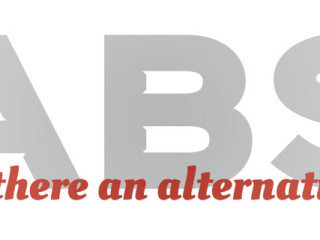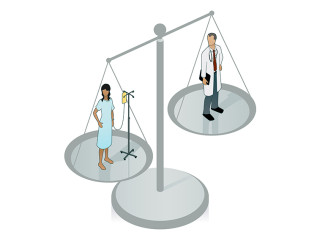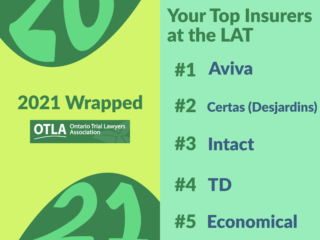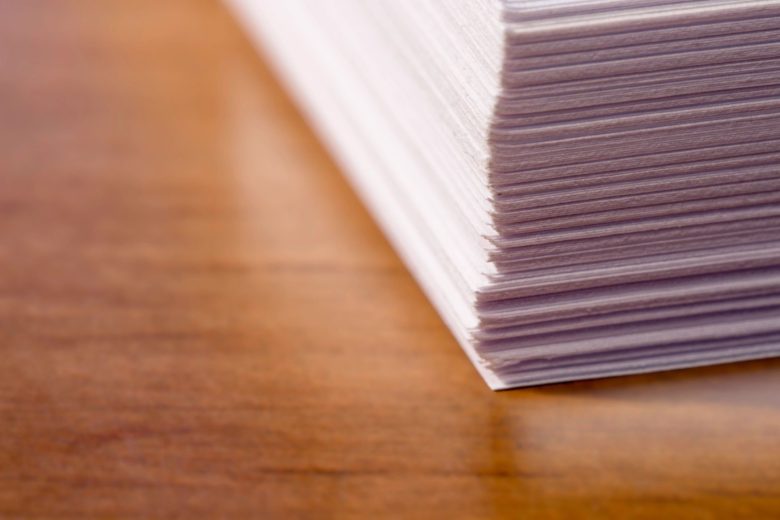Heading:
Lawyers are permitted to write expert reports (and/or expert’s affidavits) for their litigation experts without piercing litigation privilege.
Overview:
In the wake of recent Supreme Court of Canada and Ontario Court of Appeal decisions relating to expert evidence, this case affirmed that counsel are permitted to corroborate with their experts without the fear of losing privilege over those communications when that expert later testifies.
Facts:
This was a refusals motion brought as a consequence of what Justice Perell described as the “remapping of the law of privilege and the law of civil procedure associated with retaining and preparing an expert to testify.”
The dispute on the motion was whether it was appropriate for a retaining party to consult with and author its own expert’s draft affidavit.
If improper, then the moving party sought to use evidence of that lawyer’s influence as grounds to support the piercing of litigation privilege and require the production of all drafts as well as all notes of the consultations between the expert and retaining lawyers. The Applicants resisted production on the basis that that litigation privilege persisted.
Context of the Litigation
This decision was a refusals motion brought in the context of an Application to declare sections of the Corrections and Conditional Release Act unconstitutional due to their infringement of sections 7 and 15 of the Charter of Rights and Freedoms. The Applicants had proffered Affidavit evidence from several experts in support of that Application. Those experts were then produced for cross-examination.
During the preparation of the Affidavit evidence, the Applicants had conducted an initial interview with their experts, then drafted the anticipated evidence for their experts in the form of the expert’s affidavit, and then provided those draft Affidavits to their expert for final review and approval. Via productions in advance of the cross-examinations, the Respondents learned that the Applicant had sent its expert an email confirming their plan to: set up a discussion to determine what to include in the Affidavit, then based on that conversation, the Applicant would draft a “very rough draft” of the Affidavit which the expert would review and finalize.
At the oral examinations, the Respondents asked questions and requested documentation surrounding the preparation and authorship of the expert evidence; including demanding production of all drafts and notes documenting the communications between counsel and the expert. All were refused on the basis of litigation privilege.
The Respondent moved for the production of the otherwise privileged information and documentation, claiming that the Applicant’s actions necessitated the disclosure because litigation privilege should yield when there are reasonable grounds to suspect that the communications were likely to interfere with the expert’s duty of independence and objectivity.
Issues:
- Are questions relating to the preparation and authorship of expert reports protected by litigation privilege?
- When is litigation privilege over communications with a litigation expert lost?
Decision:
Refusals motion is dismissed.
Reasons:
The questions relating to the preparation and authorship of expert reports are privileged and entitled to protection from disclosure, save for the exceptions carved out by statute under Rule 53.03(2.1) of the Rules of Civil Procedure.
Although litigation privilege is not absolute, the exceptions that warrant the piercing of litigation privilege were not engaged in the instant case. The Applicant’s actions did not cause it to lose the protection of litigation privilege, and were in fact appropriate and supported by the reasoning of the Ontario Court of Appeal in Moore v. Getahun and Bruell Contracting Ltd. v. J &P Levesque Bros. Haulage Ltd.
Litigation privilege protects oral and written communications between a lawyer and a third party made for the dominant purpose of contemplated litigation. It creates a “zone of privacy” which is needed in an adversarial system in order for the litigants to prepare for their hearing. At paragraph 63, Justice Perell stated:
“It is known from Moore v. Getahun that litigation privilege is not lightly to be abrogated and that consultation by a party with his or her paid expert is an acceptable and necessary norm of the adversarial system”.
Litigation privilege will therefore only be compromised where the conduct of the party creates a reasonable suspicion that counsel improperly influenced the expert.
When is a reasonable suspicion established sufficient to abrogate litigation privilege?
The short answer is that it depends on the facts; a contextual analysis is required.
This decision does not provide insight into what will be sufficient to raise a reasonable suspicion to justify piercing the “zone of privacy” created by litigation privilege; it only identifies what will be insufficient evidence.
The starting point for the contextual analysis requires consideration of what communications are acceptable between an expert and the retaining lawyer, and also a consideration of the ethical duties that are presumed to be followed in the absence of evidence to the contrary.
What is an Acceptable Communications and Collaboration with an Expert?
The factual foundation in support of that reasonable suspicion does not arise simply because a party, through their lawyer, assisted in drafting a report or affidavit of the expert. That type of conduct was specifically addressed by Justice Sharpe in Moore v. Gethun as being acceptable. Justice Perell discussed the Court of Appeal’s analysis of this issue at paragraph 49, indicating that it was normal, proper and helpful to have an expert consult with the retaining lawyer in order to allow the litigant’s lawyer to assist the expert in framing their opinion in a way that was comprehensible and responsible to the pertinent legal issues in the particular case. At paragraph 49, Justice Sharpe was quoted as follows:
“Consultation and collaboration between counsel and expert witness is essential to ensure that the expert witness understands the duties reflected by rule 4.1.01 and contained in the Form 53 acknowledgement of expert’s duty. Reviewing a draft report enables counsel to ensure that the report (i) complies with the Rules of Civil Procedure and rules of evidence, (ii) addresses and is restricted to the relevant issues and (iii) is written in a manner and style that is accessible and comprehensible. Counsel need to ensure that the expert witness understands matters such as the difference between the legal burden of proof and scientific certainty, the need to clarify the facts and assumptions underlying the expert’s opinion, the need to confine the report to matters within the expert witness’s area of expertise and the need to avoid usurping the court’s function as the ultimate arbiter of the issues.
Counsel play a crucial mediating role by explaining the legal issues to the expert witness and then by presenting complex expert evidence to the court. It is difficult to see how counsel could perform this role without engaging in communication with the expert as the report is being prepared.”
Accordingly, the starting point for a contextual analysis of whether reasonable suspicion arises must acknowledge that consultation and collaboration between an expert and their retaining lawyer is expected and laudable. The fact of that collaboration is therefore insufficient to establish a reasonable suspicion that counsel improperly influenced the expert.
Consideration of the Professional and Ethical Obligations Governing the Interaction:
Upon his review of the “remapped” law relating to expert evidence, Justice Perell concluded that a contextual assessment of the alleged improper influence should also consider the ethical obligations of both experts and their retaining counsel. In short, the court will require a high threshold to infer impropriety given the expert’s acknowledgment of their duties and given counsel’s professional and ethical obligations prohibiting improper influence. At paragraph 50, Justice Perell considered Justice Sharpe’s analysis of this issue in Moore v. Getahun, stating:
“where a litigant’s lawyer is involved in the preparation of the expert’s opinion, the risk of interference with the witness’ independence and impartiality was low because the ethical and professional standards of the legal profession forbid counsel from engaging in practices likely to interfere with the independence and objectivity of expert witnesses. Further, the ethical standards of the witnesses’ professional bodies typically place an obligation upon their members to be independent and impartial when giving expert evidence.”
Summary of the Circumstances that Do Not Trigger the Abrogation of Privilege (on their own):
What emerges is essentially a presumption of propriety absent material evidence of impropriety. Such evidence will not be made out simply by:
- There having been communications between the lawyer and their expert before the final expert report/affidavit was completed;
- There having been previous drafts of the report/affidavit that were discussed between the expert and the retaining lawyer;
- The retaining party having actually drafted the original drafts of the expert’s report or affidavit evidence.
None of the above justifies the abrogation of the litigation privilege protecting communications between a lawyer and their litigation expert.
Before Moore v. Getahun, there was a great deal of uncertainty about what documentation and information relating to communications with litigation experts were required to be disclosed to the opposite party. The present case is an example of this, where counsel for the Applicants had actually voluntarily produced to the Respondents more than they were likely required. That included an email to their expert, confirming their plan to discuss the expert’s anticipated evidence and then draft the expert’s evidence for them by way of affidavit. That plan understandably triggered suspicion from the Respondents who sought more information about those communications and draft reports in order to challenge the impartiality of the litigation expert.
The Respondents’ corresponding motion for production of litigation privileged communications and draft affidavits was dismissed because that type of communication was precisely the type that was normal and expected between lawyer and his litigation expert. In the specific context of this case, the experts’ affidavits were drafted for their review following a discussion about their anticipated evidence. Justice Perell analogized this to the common practice of counsel drafting witness statements for lay witnesses, stating at paragraph 70:
“she, in effect, was taking a witness statement that she planned to draft as an affidavit for their review and approval. That approach is an everyday occurrence in litigation. I see nothing untoward or improper about the approach of Ms. Chu chatting with these experts about what they might want to say in their affidavits and then putting together a rough draft to be finalized by the experts.”
Although this refusals motion was brought in the context of an Application and not an Action, by extension, this case applies equally to expert reports commissioned in the course of an action. It supports the maintenance of the “zone of privacy” for parties who engage a litigation expert and commission expert reports in compliance with Rule 53 in support of their actions.















